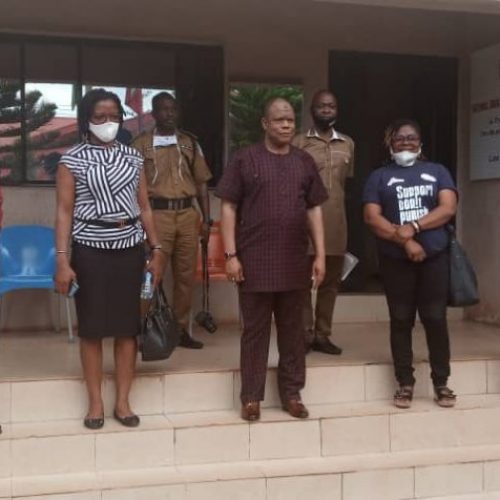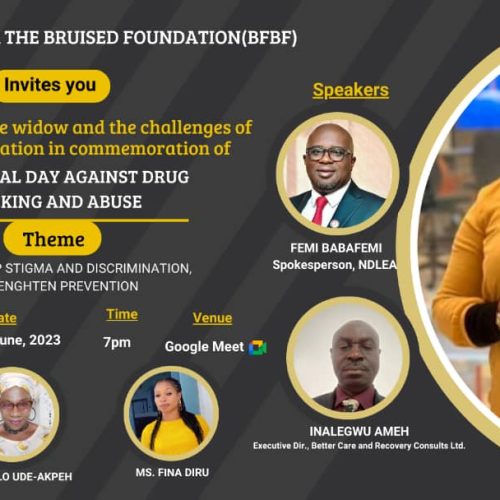STEP-BY-STEP GUIDE TO REHAB
STEP-BY-STEP GUIDE TO REHAB
In the quiet between one late-night argument and the morning school run, recovery often begins, not with a dramatic declaration, but with a single honest moment: “I need help.”
Rehab is not a miracle switch; it’s a careful, human process that untangles habit from health, and rebuilds a life one practical step at a time.
This is Amaka’s story, a composite of many lives, and a step-by-step guide to how rehabilitation actually works, what to expect, and how families can help.
Step 1 – Admit and reach out
For Amaka the first step was admitting the problem and picking up the phone.
That might mean talking to your GP, a trusted nurse, or a local addiction service. If you’re outside
Nigeria, national helplines and directories can point you to accredited services; in Nigeria organisations such as the NDLEA have been expanding treatment and counselling centres. Making that first call is not weakness, it’s a plan.
Step 2 – Assessment and stabilisation
On arrival, a clinical team conducts a full assessment: medical history, mental health screening, social needs and any legal issues. This creates a personalised treatment plan.
If withdrawal symptoms are likely, staff will stabilise you before therapy begins.
The aim is to keep you safe and comfortable so real recovery work can start.
Step 3 – Detox (when needed)
Detox is the body’s first step away from substance dependence.
For many, it must be medically supervised because withdrawals can be unpredictable and, in some cases, dangerous.
A supervised detox provides medicines where appropriate, nursing care and monitoring, not punishment, but protection.
Step 4 – Therapy and skill-building
Once physically stable, therapy begins.
Evidence-based approaches, cognitive behavioural therapy (CBT), motivational interviewing, family therapy and group work, teach people to recognise triggers, manage cravings and rebuild relationships.
These therapies aren’t about blame; they’re skills training for living well without substances.
Peer groups also play a central role in normalising recovery and offering practical tips for everyday challenges.
Step 5 – Medicines where they help
For certain conditions, medicines form part of the treatment, for example, medication-assisted treatments for opioid dependence or drugs that reduce cravings for alcohol.
These are tools, not a cure-all, and work best when combined with counselling and social support.
Decisions about medication are clinical and personalised.
Step 6 – Aftercare and relapse prevention
Rehab doesn’t end when someone leaves a centre.
Aftercare, follow-up counselling, peer support groups, housing and job help, is the bridge back into everyday life.
Relapse is not failure; it’s a warning sign that the plan needs adjusting, and good aftercare reduces its likelihood.
Strong recovery plans include clear relapse prevention strategies and easy routes back to help if needed.
Step 7 – Rebuilding a life
Recovery is also practical: repairing relationships, finding steady work, re-learning how to socialise without alcohol or drugs.
Local centres, charities and government programmes can help with vocational training and counselling to rebuild confidence and routine.
Community acceptance and simple kindness are often the most powerful medicines.
What families can do
Listen first. Ask “How can I support you?” rather than “Why did you do this?”
Practical actions, accompanying someone to appointments, helping with childcare, or ensuring medication is taken safely, matter.
Family therapy can repair trust and give carers their own coping strategies.
Questions to ask a treatment centre
Is it accredited? Who are the clinical leads? What does aftercare look like? Are costs and referral pathways transparent?
Beware of services that promise instant fixes; some third-party referral sites take commissions and may not be fully impartial, check accreditation and ask for patient reviews.
Where to find help in Nigeria and beyond
Nigeria has been ramping up treatment and counselling centres while hospitals such as Federal Neuro-Psychiatric units run specialist services; national agencies provide information and referrals.
Internationally, reputable resources include national health services and specialist bodies that list accredited centres and helplines.
If someone is at risk of harming themselves, contact emergency services immediately.
A few final notes, because hope needs plain facts
• Rehab is a journey, seldom linear. Celebrate small wins.
• Professional help combines medicine, therapy and social support, not judgement.
• Families recover too; carer support is vital.
• Credible services are transparent about costs, staff qualifications and aftercare.
Would you like to read real recovery stories, practical checklists for choosing a centre, or a downloadable “what to pack” guide for the first day in rehab?
Tell us which bit you want and we’ll publish it next. Share this story with someone who might need it, a speedy message can change a life.
About author
You might also like
CIND Partners NDLEA On Awareness Against Drug Abuse, Trafficking In Communities
The Community Intervention Network on Drugs, CIND, a conglomeration of one hundred and twenty Non Governmental Organizations that is committed to eradication of drugs abuse at grassroots level, has expressed
DRUGS AND WORKPLACE ACCIDENTS: THE SILENT HAZARD WE DON’T TALK ABOUT
DRUGS AND WORKPLACE ACCIDENTS: THE SILENT HAZARD WE DON’T TALK ABOUT On a rainy Tuesday morning in Abuja, Chike* tightened his safety helmet, wiped his face with the back of
BFBF Holds Webinar Ahead Of International Day Against Drugs
United Nation’s Office on Drugs and Crimes, UNODC, says 14.4 million Nigerians use drug and that one out of every four drug users in Nigeria is a woman. These women,




0 Comments
No Comments Yet!
You can be first to comment this post!